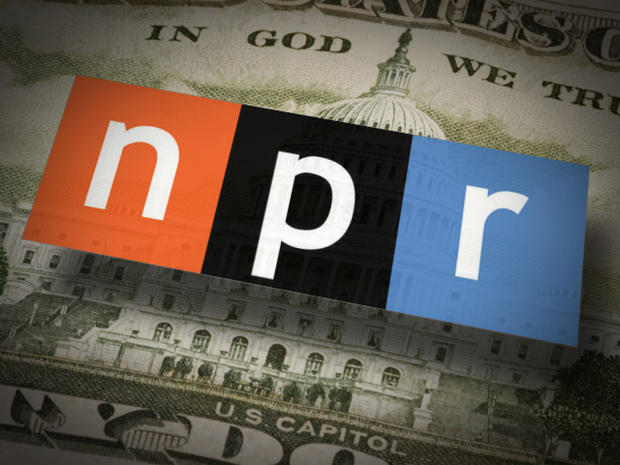House Votes to defund NPR
In a largely party-line vote, the Republican-led House of Representatives voted Thursday afternoon to prohibit federal funding for National Public Radio and prohibit public radio stations from using federal funds to pay dues to NPR and other public radio distributors or purchase their programming.
The vote was 228 to 192, with one member voting present. Every Democrat opposed the bill, along with seven Republicans.
The bill voted on Thursday prohibits all federal funding from going to NPR (which distributes "All Things Considered" and other programs) as well as to distributors like Public Radio International (distributor of This American Life and other programs) and American Public Media (distributor of Marketplace and other programs).
As part of its spending bill for the remainder of the fiscal year, the House previously voted to eliminate federal funding for the Corporation for Public Broadcasting (CPB), which was allocated $432 million from the government in fiscal year 2011 to distribute to public radio and television. (The Democrat-led Senate voted down the bill.) Most of that money goes to member stations, not to NPR itself.
Thursday's vote was largely symbolic, since the Democrat-led Senate is not expected to take up or pass the measure. The White House released a statement before the vote "strongly" opposing the bill, which the White House said it would hobble public radio stations around the country.
"The vast majority of CPB's funding for public radio goes to more than 700 stations across the country, many of them local stations serving communities that rely on them for access to news and public safety information," it said. "Undercutting funding for these radio stations, notably ones in rural areas where such outlets are already scarce, would result in communities losing valuable programming, and some stations could be forced to shut down altogether."
Less than ten percent of NPR's budget comes from taxpayer dollars, and Republicans stressed that cutting off that funding would not kill it.
"They could survive and even thrive," he said, stressing the need to cut spending to reduce the deficit and debt. "So let's let them loose from taxpayer subsidies."
Democrats cast the effort as political posturing by Republicans who have unfairly cast NPR as liberally biased. The vote comes following the release of a hidden-camera video from conservative activist James O'Keefe that showed an NPR executive making derogatory comments about the Republican Party and the Tea Party, including saying the words, "They're seriously racist, racist people." Like past O'Keefe videos, the short version of the video was later shown to be deceptively edited.
"Why should we allow taxpayer dollars to be used to advocate one ideology?" asked Majority Leader Eric Cantor, R-Va, before the vote.
Rep. Anthony Weiner, a New York Democrat, sarcastically thanked Republicans in the debate before the vote for trying to rid America of the hosts of "Car Talk."
"They talk about master cylinders. It's kinky," he said. "I am glad my Republican friends are finally getting to the bottom of this. And then with all the giggling and snorting they do every weekend on their show, it's got to be some kind of a code."
"They're clearly talking to the Russians or Chinese with all that giggling and snorting," Weiner added. "I am so relieved we had this emergency session that we waived the rules of the house that requires 72 hours so we can finally get these guys off my radio."
"While the bill doesn't cut funding a penny, it is a direct and calculated effort to weaken public radio that if enacted would choke our stations ability to serve their local audiences," he said.
Lamborn, the bill's sponsor, countered that the money simply wasn't there to keep funding public radio.
"It is time for American citizens to stop funding an organization that can stand on its own feet,'' he said on the House floor, arguing that taxpayer money can no longer be spent on non-essential services. "As a country we no longer have this luxury."
According to the Associated Press, NPR took in $56 million in programming fees last year, and received $7.8 million in federal funding and federal grant money.
